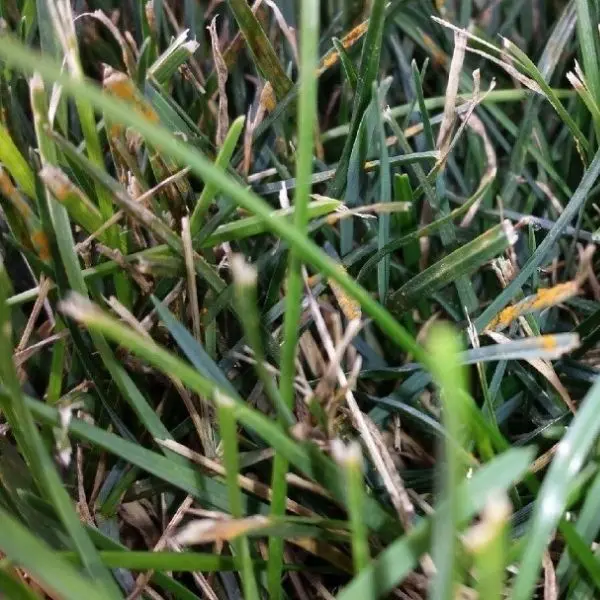Lawn Disease Solutions

Mushrooms
There are a lot of fungus varieties that can cause problems in turf grass. Mushrooms are among the most visible but least harmful of lawn fungi.

Rust Lawn Disease
Have you ever walked through your lawn and noticed a slight orange or reddish-brown tinge across patches of your grass that look like rust? Crazy as it sounds, it might actually have been rust.

Lawn Disease Prevention
If you've ever seen a lawn nearly destroyed by disease, you know how devastating these unfriendly parasites can be to a beautiful lawn.

Dollar Spot
Dollar spot doesn't look very serious individually so it’s easy to underestimate the damage potential. Dollar spot lawn disease kills the turf clear to the roots, causing serious damage.

How to Identify Slime Mold on Grass
Slime Molds are saprophytes, or organisms that obtain their food from dead or decaying organic matter. Learn how to best handle this lawn disease.

Common Patch and Ring Lawn Diseases
Lawn diseases are always in the wings, just waiting for a weak moment to attack your grass.

Necrotic Ring Spot
This type of lawn disease can be severe on Kentucky bluegrass and bentgrass, and also takes a stab at ryegrass, red fescue, tall fescue and Chewings fescue.

Mowing and Watering
Your lawn gets put through a lot. Weeds invade it, insects chew it, and heat shrivels it. But nothing is as hard to tame as fungus lawn diseases on the loose.

Spring Dead Spot
Nearly all Bermuda grass varieties are affected by spring dead spot, especially in the cooler parts of the transition zone.

Brown Patch Lawn Disease
Brown patch lawn disease is one of the most destructive of all turf grass diseases. It sneaks up on you and destroys large areas of turf virtually overnight.

Snow Mold
Snow Mold lawn disease can infect most all types of grasses that must endure a period of freezing temperatures and snow cover.

Red Thread Lawn Disease
Red thread (also known as pink patch) is one of the easiest lawn diseases to spot because it sports a distinctive pinkish red coloration.

Pythium
The first signs of Pythium lawn disease are usually small patches of turf that look water-soaked and dark or purplish in color.

Leaf Spot
Leaf spot and melting-out are the common names given to a large number of lawn diseases caused by the same family of fungi.

Fairy Rings
It has been said that Fairy Rings are the sign of good luck and fortune. To the homeowner who has been plagued with the Fairy Ring lawn disease, however, their good luck is often the last thought on their minds.
